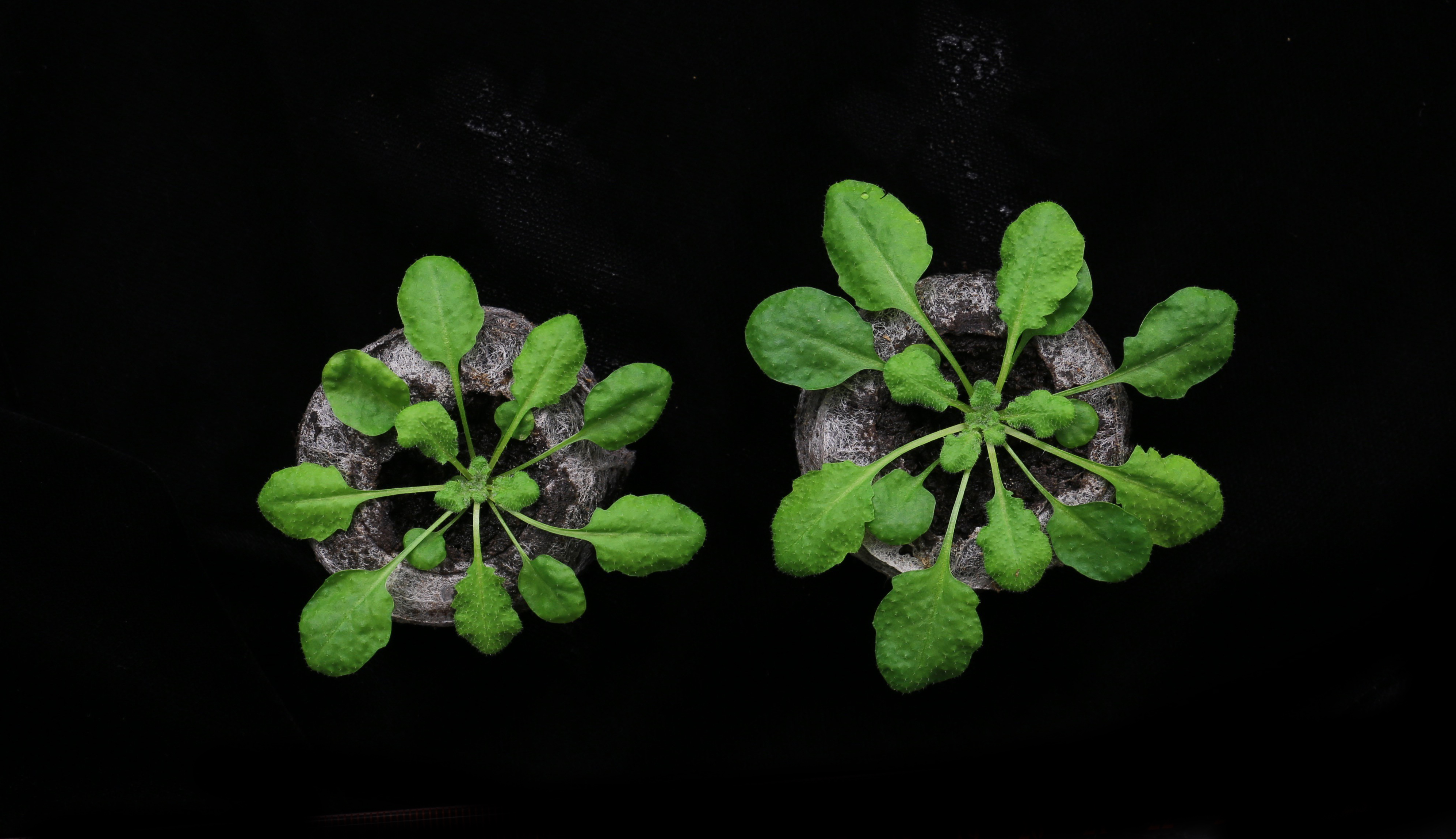
The research team treated the plant Arabidopsis (shown above) with a specially selected strain of bacteria to boost their growth in stress conditions. The smaller plant on the left is the control and the plant on the right is the bacteria-treated plant. Photo: KAUST 2021
A bacterium living inside the roots of some plants enables them to grow well despite salty conditions. Their secret weapon is to trigger sulfur metabolism, a finding that is already helping to develop new biotechnologies that facilitate the irrigation of agricultural crops with salty water. This is an important prospect for countries like Saudi Arabia that depend on energy-intensive desalination for its fresh water.
Some types of beneficial bacteria interact with their plant hosts to help them thrive while also promoting plant growth. In 2013, plant scientist Heribert Hirt founded the Darwin21 project at KAUST, with the aim of using desert plant bacteria to improve agricultural sustainability in arid lands. This led to the isolation of a bacterium called Enterobacter sp. SA187, which they found can make crops resistant to various stresses including heat, drought and salt tolerance.
Hirt's team has now analyzed the genetic and metabolic changes that happen inside SA187 and the model research plant Arabidopsis when they interact under salt-free and salt-stressed conditions.
"We wanted to understand the molecular mechanisms behind the salt tolerance that results from plant interactions with SA187," said plant scientist Rewaa Jalal, who obtained her Ph.D. at KAUST and is now an assistant professor at the University of Jeddah.
Generally, when plants are exposed to too much salt, their cells release reactive oxygen species, causing cell damage and reducing plant growth and crop yields. The researchers found that salt stress triggers sulfur metabolism in SA187 bacteria living inside Arabidopsis roots. This in turn leads to the release of sulfur metabolites that feed sulfur metabolism in the Arabidopsis plant, generating a key antioxidant called glutathione that detoxifies the plant from salt-induced reactive oxygen species, enabling it to grow and thrive despite the stress.
"Another key finding of our investigations was that we can replace the protective function of SA187 against salt stress damage of the plant by directly adding sulfur metabolites, opening up the possibility to use probiotics in agriculture," said Hirt.
Along with molecular biologist Maged Saad and several current and previous students, Hirt is establishing a startup that aims to provide breakthrough technologies that can treat seeds or crop plants with SA187, saving Saudi farmers money and making saline agriculture a reality.
"We could meet most of the global demand for food production if knowledge like this is applied with the proper tools to arid and semi-arid lands," said postdoc Hanin Alzubaidy.






